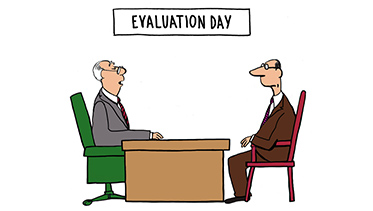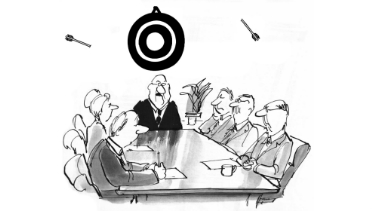Chris Lytle has conducted nearly 2300 seminars throughout the English-speaking world. A gifted speaker and the best-selling author of The Accidental Salesperson, Chris has inspired hundreds of thousands of salespeople. He posts a fresh new audio sales idea on this website every week. You can grab a free sample here. Email it to your sales team. They can get world-class sales training on their smart phones.
Chris Lytle
11
Oct2016
How long is a “Got-a-minute?” meeting in your office? I’m guessing it’s more than a minute.
Shoot, I remember a “Got-a-second?” meeting that lasted an hour and a half!
Salespeople ask you for a minute whenever they have a fire for you to put out for them.
Maybe you have trained your reports that you’re willing to do their firefighting for them.
Why not? After all, you know more than they do and you’re their boss.
Here’s why not.
Your real job is developing your salespeople so they can do their jobs better.
Yes, developing people takes a lot more time on the front end. As a sales manager, the quick and easy thing for you to do is this:
Give people the answers to their questions.
Solve their problems for them.
Put out the fire.
Then, move on to your next “Got-a-minute?” meeting.
This can go on all day.
And it probably will unless you change your approach.
Developing people starts with your willingness to coach.
Chris Lytle’s Critical Rule of Coaching is to ask at least seven questions before you give an answer.
“But, Chris, I don’t have the time to ask seven questions,” you say. “There are salespeople lined up at my door waiting for me to fix things for them.”
You have to make the time.
Coaching builds loyalty. To ask seven questions, you have to quiet your mind and listen to people.
When people feel listened to and not judged, they become more confident and committed.
Because people rarely resist their own idea.
And you cannot possibly ask seven questions in a row unless you really are listening.
“You can’t influence someone’s thinking until you know what they’re thinking.” The late Norm Goldsmith said this to our Leadership Institute participants every session.
You won’t know what someone on your sales team is thinking until you ask.
“Got-a-minute?”
That’s your signal that you have an opportunity to develop someone.
October 11, 2016Chris Lytle












